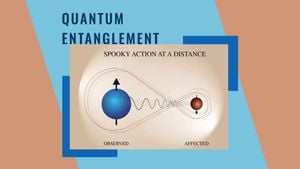During recent episodes of Good Morning Britain, host Kate Garraway showcased her empathetic nature, providing comfort to guests grappling with heartbreaking experiences. On one of the Thursday shows, Garraway and her co-host Richard Madeley welcomed Diana Defries, who shared her painful story of having to give up her baby for adoption at just 16 years old. Diana is now advocating for the government to issue a formal apology for the trauma endured by women like her.
The conversation soon turned emotional as Richard prompted Diana to share her final moments with her child. Choking back tears, she recounted, "I can, it isn't easy because it's very difficult experience to talk about." She painted a vivid picture of her last moments with her daughter, describing how holding her transformed her perspective: "I stood there holding her and I felt, it was like something had changed in me... I was filled with this feeling of joy." This touching narrative underscored the gravity of her loss, and Kate was quick to offer comfort, providing tissues and gently probing about the impact of this experience on Diana's life.
Diana revealed the lasting emotional scars of her adoption experience. Reflecting on the incident, she said, "It changed everything." Struggling with emotions, Diana recounted how the loss of her child affected her schooling and decisions later in life. This candid admission came alongside Richard's inquiries about her relationship with her own mother, to which Diana revealed, "I never received an apology from my mother and have never forgiven her."
The discussion shifted to Diana's eventual reunion with her daughter when she turned 18. "Yes, in some respect, I'm very lucky," she noted, expressing gratitude for the opportunity to reconnect. Yet, questioning what this meant for the broader community, Kate asked Diana about the potential government apology. Diana responded passionately, articulately expressing the need for acknowledgment of the injustices faced by many women like her: "What would it mean for me, and for all the people affected by this... it would be an acknowledgment of the major, major injustice which we faced."
Sunshine was shed on Diana’s case, emphasizing how she is one of 200,000 unmarried mothers pressured to surrender their children for adoption during the mid-20th century. These women are now collectively seeking recognition and apology from the state, as they feel the burden of shame should be shifted to the responsible authorities. An apology could validate their struggles, Diana argued, by recognizing the wrongs of the past: "It should've never happened. The support was available, but we weren't told." This powerful sentiment was echoed as viewers were encouraged to look forward to the upcoming ITV programme, Forced Adoption: Britain's Silent Scandal, which aims to explore this pressing issue.
On the following day’s episode, the conversation pivoted to Raneem's Law, introduced to help prevent domestic abuse following the tragic murder of Raneem Oudeh and her mother. Kate Garraway discussed this development with Raneem's aunt, Nour Norris, who reflected on the change it signifies for future victims. Adil Ray, also co-hosting the segment, posed poignant questions about whether the new law brings solace to those affected by Raneem's tragic story. Nour emphasized the desperation for help among victims, advocating for systemic support: "Safeguarding shouldn't be luxury but something everybody deserves."
During the segment, Kate expressed her feelings about the gravity of the situation, stating, "So powerful, the way you put it, and so graceful to have it... I feel overwhelming rage and frustration..." The discussion highlighted the need for suitably trained domestic abuse specialists to be embedded within emergency response systems. This is especially important following tragic events like Raneem's, where distress calls failed to receive timely responses from authorities.
Raneem’s own recorded 999 call was also made public during the episode, where she expressed her frustration over the police not arriving quickly enough. "That's the problem when I'm calling, they're not coming quickly," she stated, echoing the sentiments of many victims who struggle to receive timely help. Following the conversation, MP Jess Phillips remarked on the necessity for cultural change within emergency response services, noting the failures which allowed Raneem’s plight to go unnoticed.
Both Diana's and Raneem’s stories serve as painful reminders of the vulnerabilities victims face and the systemic reform needed to end such injustices. Kate Garraway's ability to encapsulate the emotional depth of each narrative showcases the program's commitment to highlighting and addressing societal issues head-on.



